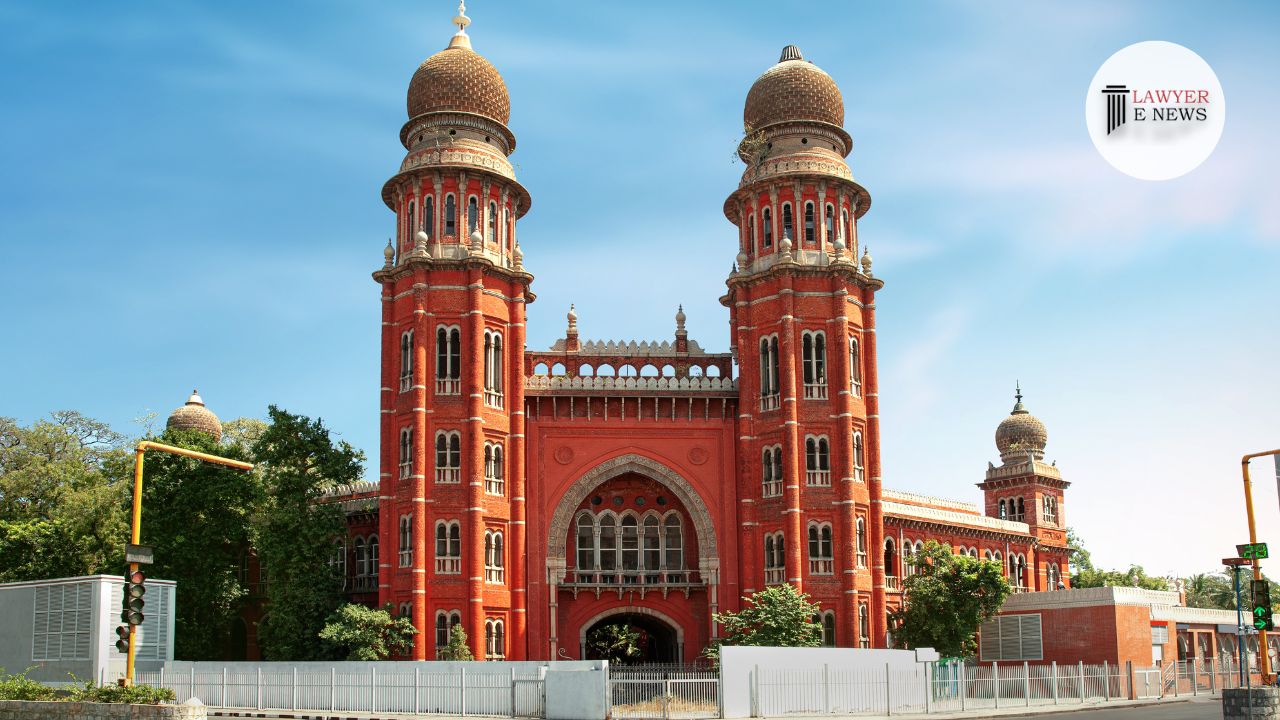-
by Admin
15 February 2026 5:35 AM



In a significant ruling, the Madras High Court has ordered the registration of a sale deed that was previously refused by the Sub Registrar of Tiruppathur. Justice G.R. Swaminathan emphasized that the refusal was based on an erroneous interpretation of Section 22-A of the Registration Act, 1908, which does not currently include church properties. The court also underscored the necessity for legislative amendments to extend similar protections to church properties as those provided for Hindu and Islamic religious endowments.
Facts of the Case: The petitioner, Shalin, purchased a property measuring 1345 square feet in Tiruppathur, Sivagangai District, from Vijaya through a sale deed dated 28.03.2023. Upon presenting the sale deed for registration, the Sub Registrar refused to register the document, citing a refusal check slip grounded in a prior court directive and an Inspector General of Registration circular. Shalin challenged this refusal through a writ petition.
Refusal Based on Misinterpretation: Justice G.R. Swaminathan found that the refusal to register the sale deed was unjustified, noting that the cited circular and court order did not apply in this context. The court observed, "The circular issued by the IG of Registration on 24.05.2017 was a mere communication of an interim order which ceased to have effect following the disposal of the main writ petition."
Legislative Gaps: The court highlighted a significant legislative gap, stating, "It is surprising that church properties are not granted similar protection as those endowed under Hindu and Islamic laws." Justice Swaminathan called for legislative action to include church properties under the scope of Section 22-A of the Registration Act, emphasizing the principle of secularism in India and the need for equal treatment of all religions.
Examination of Section 22-A: The court extensively discussed the scope of Section 22-A of the Registration Act, which mandates the refusal to register documents related to properties belonging to the state, local authorities, or religious endowments covered by specific legislations. Justice Swaminathan stated, "Section 22-A must be strictly construed and its scope confined to what the restrictive provisions specifically envisage."
The court reasoned that the sale deed in question should be registered as there was no statutory basis for its refusal. The decision pointed out that the previous sale and settlement deeds involving the property were legally registered, and the revenue records were updated accordingly. Therefore, the refusal lacked justification under the current legal framework.
Justice Swaminathan remarked, "Probably the time has come to include church properties also within the scope of Section 22-A of the Act. As on date, Section 22-A is not applicable to transactions involving church properties."
This judgment by the Madras High Court underscores the importance of clear legislative provisions for the registration of religious properties. By directing the registration of the sale deed, the court has highlighted a critical gap in the protection of church properties and called for necessary amendments to ensure equal treatment of all religious endowments. This ruling is expected to prompt legislative review and potentially lead to more inclusive protections under the Registration Act.
Date of Decision: April 17, 2024
Shalin vs. The District Registrar, Karaikudi, Sivagangai District and Another
